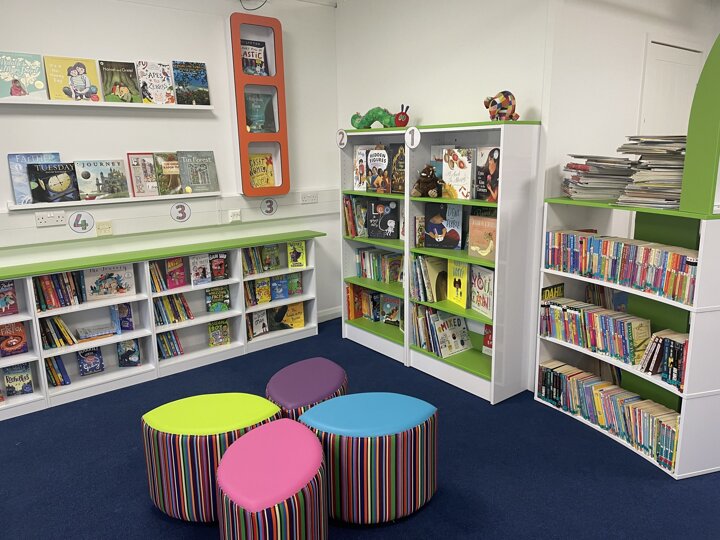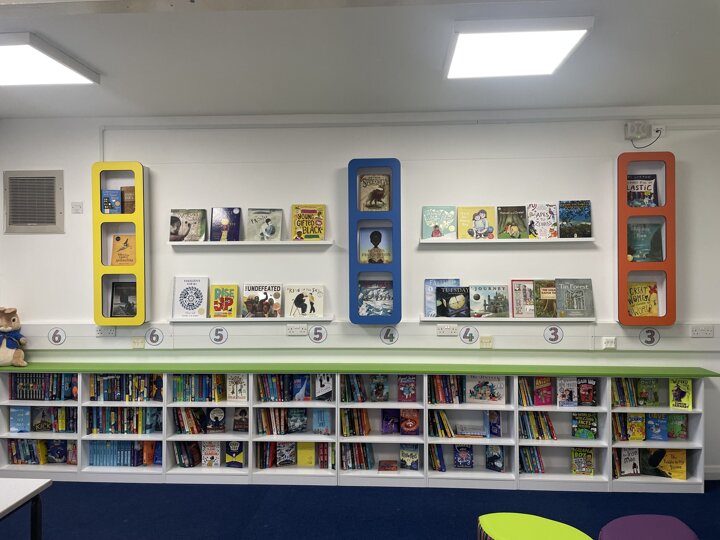Reading
At Kenilworth, we identify learning to read as a fundamental building block to support children to succeed.
Learning to read is an integral part of the school curriculum because of the impact on reading on all aspects of the curriculum. As a staff, we prioritise the teaching of reading throughout the curriculum, and we are developing our foundation subjects to ensure high quality texts are woven throughout all subjects. Our intent is for all children to enjoy reading with fluency and accuracy and to enjoy reading for pleasure.
We teach reading throughout all year groups at Kenilworth. This can be in the form of guided reading, phonics lessons, one to one reading with an adult, intervention lessons, reading recommendations and independent reading. We use the synthetic phonics program Little Wandle to support our teaching of reading and use Big Cat Books to support this. Home reading books are aligned to phonic stages and children who have completed the phonic scheme are assessed and move through the Book Bands until they reach the required standard to become a free reader, choosing a book from their class libraries. In order to further develop the children's enjoyment of reading, we also encourage every child to take home a book from our well-stocked school library.
All children take books home to read with an adult, this shared learning supports children to practice their reading skills and the vocabulary development that is supported by shared book discussion.
Reading for enjoyment
We try to encourage a love of reading by holding book themed days and events both as individual classes and across the whole school, for example: World Book Day, National Poetry Day and Dress as a Word Day. We are developing links with Borehamwood Library and all children in Reception and Year 1 visit each year. We also encourage all pupils to participate in the National Libraries Summer Reading Challenge. Book Fairs are held annually to allow all children the chance to look at new books of all genres and hopefully purchase a new book of their own to take home. We take all opportunities to encourage children to have books at home, including distributing texts as we develop and refine our school and class library stock. We redeveloped our school library in spring 2024 to create a bright, spacious and exciting area for our children to read in. It truly is a space to be proud of. We refined and carefully selected the books on offer to ensure that we promote authors and a range of reading material to appeal to all pupils. We have focused particularly on ensuring that our book stock is diverse and representative of our school community.
We endeavour to replenish and update the stock frequently and have created an Amazon Wishlist with books that we would love to include in our space! If you would like to contribute, you can view our list by clicking here.
Reading Lessons
Reading forms an important part of the curriculum and is taught daily for 30 minutes. Within Early Years and Key Stage 1, reading practice sessions are delivered in small groups. Whereas in Key Stage 2 (and Year 2, when applicable) children read from the same text in a whole class reading session and the teacher focuses on developing specific reading skills alongside the acquisition of new vocabulary. Whole-class reading sessions also mean that children of all attainment bands share the same high-quality literature and actively participate in the discussions that these texts promote.
Crucial elements to success are:
- All children read together in mixed-attainment pairs to allow for frequent, paired discussion. As a result less confident readers are exposed to the high-quality reasoning of more confident readers and become part of these discussions. The carefully chosen texts provide a clear challenge for all members of the class.
- Teachers model good use of intonation, movement, pitch and volume.
- Teachers actively monitor pace, so as to ensure high levels of engagement throughout the lesson.
- Teachers use targeted and open-ended questioning to elicit understanding from the children.
Targeted questioning is not only good for Assessment for Learning but also a good way to ensure all children engage with the lesson – if they don’t know who will be asked to provide a response, then they are more likely to consider the teacher’s question and make good use of the relationship they have with their talking partner.
- All follow-up tasks are carefully structured to provide challenge for all learners of all abilities which are clearly supported for those who need it.
Assessment, recording and reporting
- Informal assessment of children’s reading is continuous through listening to individual readers, group reading and reading across the curriculum in other subjects.
- Children have an individual reading book that reflects the stage of their development, which is used in individual reading sessions to assess progress and to highlight next steps for learning.
- Reading ages (a nationally standardized measure of reading ability) are benchmarked as a measure of progress: KS1 half termly and KS2 termly. This is also important in matching children’s learning needs to the reading material.
- Children in Years 2-6 complete reading assessment papers three times a year to support the teacher's ongoing assessments and to help prepare the children to sit their statutory assessments.
- At various points, children take statutory tests, the results of which are published to parents in annual reports: for children in Year 1 this is the phonics check and in Year 6, the KS2 Reading assessment at the end of Key Stage 2.
The Book Trust
To support your child’s reading and sharing a book with a child them can be a great deal of fun. It’s a time for closeness, laughing and talking together. Click on this link to view the Reading With Your Child booklet, which has been translated into 26 languages.

